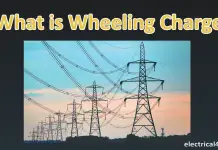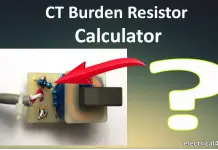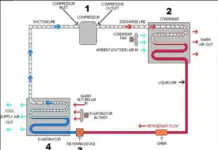HOW DOES HELICOPTER FLY
Helicopters are true flying machines. They can take OFF and land within the runway. They can fly in the air they can move any directions in 360° space.
Helicopter use airfoil principles to generate lift. When a blade rotates the relativity of air the special airfoil shape will generate lift force and make them fly.
The blades drive rotation from engine move especially true shaft engine. The compressor sucks air in and pressurized it fuel is burnt in the pressurized hot air hot exhaust leaves the combustion chamber passes the series of turbine stages and make them turn.
There are two sets of turbine first set of compressor and second set is helicopter rotor shaft.
Jet engines of airplanes are used to generate thrust force however primary function of jet engines is to turn the rotor shaft.
The most challenging part in helicopter operation is its control. That means how can they fly forward and backward? Side-ward and turn.
Just rotate the helicopter towards the direction you want to and just fly when helicopter is on certain angle force produced by the blade not vertical. The component of force will make the helicopter to move in the desired direction. The vertical components of the blade force balance the gravitational force.
Now the real challenge is how to turn the helicopter in the desired way?
To learn the science behind the helicopter turning we need to learn about the airfoil principle?
The lift produced by airfoil is varies with the angle of attach generally greater the angle more the lift.
What happen if one blade was one angle of attack and other has a different angle?
The lift force acting on the blade will be different in this case. The variation in the lift forces will definitely results in a torque they can turn helicopter. It is clear that the blade must keep on changing angle if they attack so that at one particular location angle of the attack is always same.
Such a complex motion of the blade is achieved by a swash plate mechanism.
Let see the basic components
Bottom swash plate: this plate does not swing but it will tilt.
Top swash plate is fixed on the bottom swash plate wear bearing. The top swash plate gets the all motion of bottom swash plate well at same time it rotate dependently.
Top swash plate is attached with the rotor shaft with the help of the driver.
So the top swash plate always moves with the blade, blades are connected to top swash plate with the help of control rods.
The interesting thing of this arrangement just by tilting the bottom swash plate we will able to achieve the varying angle of the blades. With this swash plate tilt we will always maintain a positive angle of the attack at the rear and negative angle at front portion of the rotor disc. This type of controlling is called a cyclic pitch.
Let’s see basic helicopter control
When the helicopter is turn side-ward this definitely a wired effect by applying in one direction to a rotating object the object turns into different direction. This effect is known as gyroscopic precession.
The gyroscopic precision is not a new phenomenon in physics if you apply a newton’s second law of motion to rotary objects you will be able to predict phenomena.
According to newton’s second law force is the rate of change of liner momentum.
Force = P2-P1/Δt
Torque is the rate of change of angular momentum.
Torque = L2-L1/ Δt
Let’s consider the rotating blade will have angular momentum when helicopter tilted by torque action. If you Victoria subtract the first angular momentum from the second you can figured out the torque required for this operation.
When the helicopter turned in forward torque applied should be sideward that means tilt the helicopter forward swash plate should tilt sideward.
Again if you vary the newton second law of motion if you keep the front portion is negative angle of attack the back portion at positive angle the helicopter will simply tilt sideward.
If you tilt the bottom swash plate without tilting the blades will vary by same angle. This means the helicopter lift force will be same in all three blades. Helicopter can move up and down without tilt such controlling is known as collective pitch.
In helicopter at there will be an tail rotor.
Every single rotor helicopter needs a tail rotor for effective operation without tail rotor the helicopter fuse a large.
According to newton’s third law we known the rotor get force of rotation wear, bevel gear connected to the engine. The bevel engine gear transmits force to the rotor bevel gear. However according to newton third law of motion rotor bevel gear transmit equal and opposite force to the engine bevel gear. This reaction force will make whole helicopter to opposite blade rotation along the helicopter center of gravity.
The function of the tail rotor is rotation by producing force at a tail by properly adjusting the pitch angle tail rotor blades. The helicopter can easily adjust the tail rotor force with help of the tail rotor force yaw motion of the helicopter is achieved.
The minute variation in blade angles makes huge variation of helicopter behavior.
Image Credit: https://www.youtube.com/watch?v=rJb1EZtnzFk



























